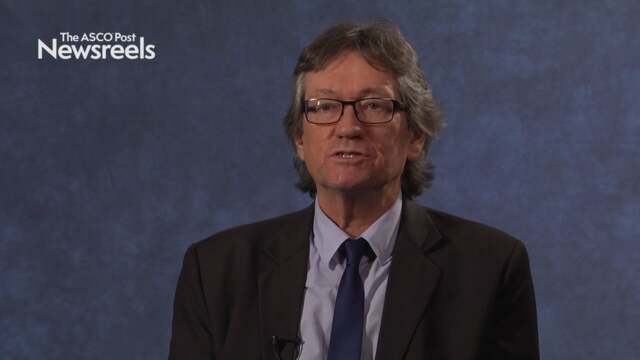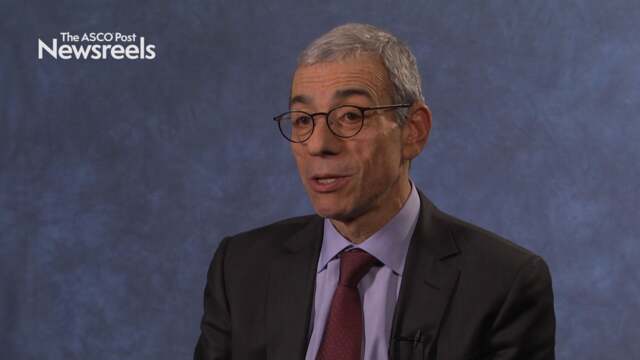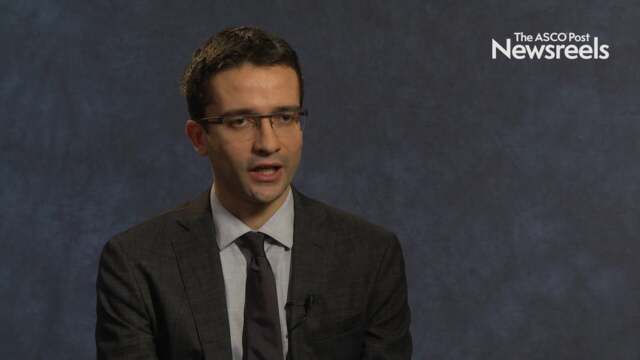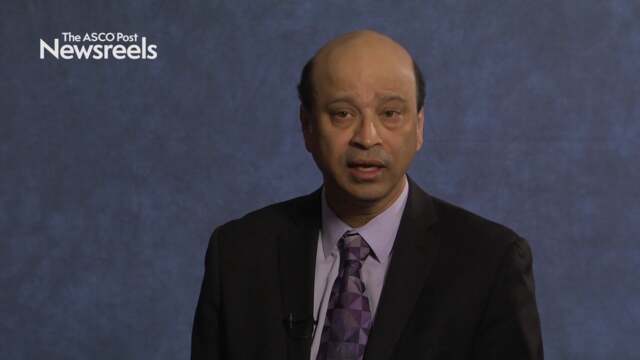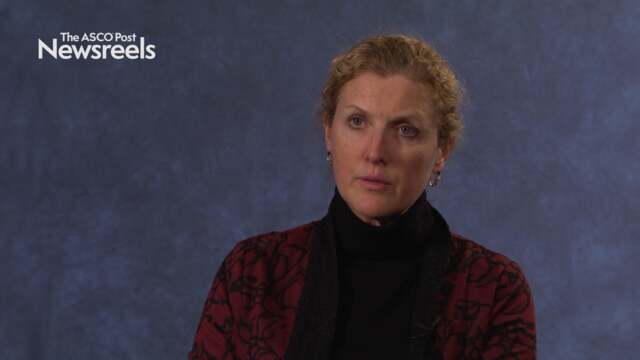Michael Gnant, MD, on Duration of Anastrozole Treatment: Results of the ABCSG-16 Trial
2017 San Antonio Breast Cancer Symposium
Michael Gnant, MD, of the Medical University of Vienna, discusses phase III study findings on giving an additional 2 vs an additional 5 years of anastrozole after the first 5 years of adjuvant endocrine therapy (Abstract GS3-01).
Richard G. Gray, MSc, of the University of Oxford, discusses an Early Breast Cancer Trialists’ Collaborative Group meta-analysis of 21,000 women in 16 randomized trials, which showed that increasing the dose density of adjuvant chemotherapy by shortening intervals between courses or sequentially administering treatment significantly reduces disease recurrence and breast cancer mortality (Abstract GS1-01).
Eric S. Winer, MD, of the Dana-Farber Cancer Institute, addresses the much-discussed controversy over whether all women diagnosed with metastatic breast cancer should undergo next-generation sequencing.
Matteo Lambertini, MD, of the Institut Jules Bordet, discusses the results of five clinical trials investigating temporary ovarian suppression with gonadotropin-releasing hormone analogs during chemotherapy as a strategy to preserve ovarian function and fertility in premenopausal early breast cancer patients (Abstract GS4-01).
Debu Tripathy, MD, of The University of Texas MD Anderson Cancer Center, discusses phase III study findings on first-line ribociclib vs placebo with goserelin and tamoxifen or a nonsteroidal aromatase inhibitor in premenopausal women with hormone receptor–positive, HER2-negative advanced breast cancer (Abstract GS2-05).
Lisa A. Carey, MD, of the University of North Carolina, discusses the long-term follow-up of CALGB 40502/NCCTG N063H, a phase III study of weekly paclitaxel compared with weekly nanoparticle albumin bound nab-paclitaxel or ixabepilone with or without bevacizumab as first-line therapy for locally recurrent or metastatic breast cancer (Abstract GS3-06).
